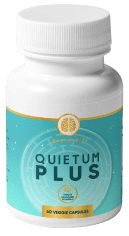The Simple Way To Support Your Hearing Health
Hi, my name is Patrick Bark, and I’ve been a long time researcher passionate to help people all over the world on how to live better and spread awareness on how anyone can help support their healthy hearing.
You see, according to the World Health Organisation 50% of hearing loss and impairment is avoidable with early detection, prevention and management. While the field of audiology has seen impressive advances in hearing aid technology, I discovered that there are several easy, natural things anyone can do on their own that may help support their healthy hearing.

So please, listen up to the following recommendations:
The first step in healthy hearing is awareness.
The ear is a complex organ that can be easily damaged so it is incredibly useful to understand how it responds to different situations to prevent potential harm.
Even a basic overview of the ear should give a good idea of what’s going on when you hear sound and what’s happening to the ear when it’s exposed to loud noise.
There are lots of good sources of easy to understand explanations of how the different parts of the ear work and how they work together in the system to allow a person to hear.
2. Get some exercise (No gym required)
Your ears detect sounds, but it’s your brain that interprets them.
Exercises that strengthen your brain’s hearing comprehension skills might help make you a better listener.
Here are two activities you can try:
The first one is to go for a walk in the woods, on the beach or in a similar setting with little man-made noise.
Focus on your surroundings and write down everything you hear, from birds chirping to the wind blowing.
Repeat this exercise several days in a row to gradually become more attuned to the ambient noise.
The second activity is even more fun:
Have a partner read aloud to you from a book or magazine on an unfamiliar topic.
After each sentence, try to repeat exactly what your partner said.
Once you’re able to consistently repeat the sentences word-for-word, try the exercise again with the TV on in the background or in a noisy restaurant.
3. Don’t stick things in your ear
Also known as cerumen, ear wax is a natural defense mechanism that protects the inside of your ear from foreign particles, bacteria and infection.
It is secreted by special glands located in your outer ear, and varies in color and consistency from person to person.
The ear is sensitive and the ear drum in particular is delicate.
The old saying ‘don’t put anything smaller than your elbow in your ear’ is a good rule of thumb here.
By using Q-tips or cotton buds or any small objects to clean or scratch the ear you are at a higher risk of perforating the eardrum.
This is painful and can leave lasting damage to your hearing..
4. Be aware of volume on personal music players
It’s easier than ever to be surrounded by sound and music throughout the day but with that comes a potential opportunity for hearing damage.
The latest versions of MP3 players and iPods have a volume limit built in, enabling this feature prevents the device from going above noise levels that would be deemed dangerous.
As a general rule of thumb, if the people around you can hear the music you’re playing through your device, it’s too loud.
The volume level should be just a little above audible, but be aware of particularly noisy environments where the background noise is so great that even this moderate measurement produces music that is too loud.
Your choice of headphones will also have an impact on the levels of sound your ears can withstand before they’re at risk of being damaged.
An important part of looking after your hearing is to get it regularly checked out by a medical professional. Having periodic check ups allows your doctors to track or spot any changes that may have occurred early on and so appropriate action can be taken. Audiograms give a measure of hearing sensitivity at a range of frequencies and tracking audiograms over a period of time may be particularly useful if you work in a noisy environment so any damage can be detected.
My life-time vision is that of a world where everybody can easily and affordably support the natural health of their hearing.
That’s why I’ve spent most of my research activity trying and testing various ways that could really make a positive impact on people’s lives.
Based on this research, I’ve searched for a natural, inexpensive mix of vitamins, plants and herbs that, combined with the tips above, could help anyone support their healthy hearing.

Click Below To Learn More…..





